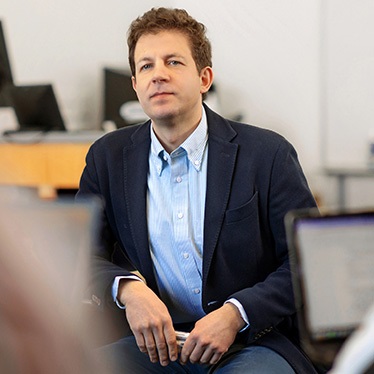Himmelreich Piece on Global Justice of AI Infrastructure Published in Cairo Review of Global Affairs
June 20, 2025
The Cairo Review of Global Affairs
“Silicon Borders: The Global Justice of AI Infrastructure,” written by Johannes Himmelreich, associate professor of public administration and international affairs, was published in the Cairo Review of Global Affairs. Following is an excerpt:
Silicon borders are an emerging challenge for global justice. AI infrastructure risks becoming monopolized. This is a problem of global justice on three grounds: Silicon borders tilt the playing field, are coercive, and ignore resource dependencies.
The solution is not a demand for unrestricted access. Even if the “balance” metaphor is problematic, concerns of national security can’t be entirely dismissed. What can be done?
First, dominant powers should exercise restraint in the scope of export controls, limiting restrictions to truly strategic technologies. The empirical assumptions that underwrite the chokepoint strategy need to be validated. Do these policies achieve their goals? The strategy itself needs to be audited: Is the policy really driven by a concern for national security? Or is economic protectionism the real goal?
Second, regional cooperation offers a promising path forward, particularly for MENA countries. Pooling resources for shared research centers, joint procurement of AI infrastructure, and collaborative regulatory frameworks could create economies of scale that individual nations cannot achieve alone.
This regional approach moreover aligns with the institutionalists’ thesis: Despite the prominence of a global justice discourse, a society’s prosperity is primarily a function of domestic institutional quality. By extension, access to AI infrastructure is valuable primarily when countries have the institutional capacity to deploy it effectively, transparently, and for public benefit. The most successful responses to silicon borders will hence come from countries that combine advocacy for fairer global access with liberal domestic governance. This requires not just investment in technology but in an educational, legal, and economic ecosystem.
Read the full article at the link above.
Related News
Research

Jul 16, 2025
Research

Jul 16, 2025
School News

Jul 16, 2025

